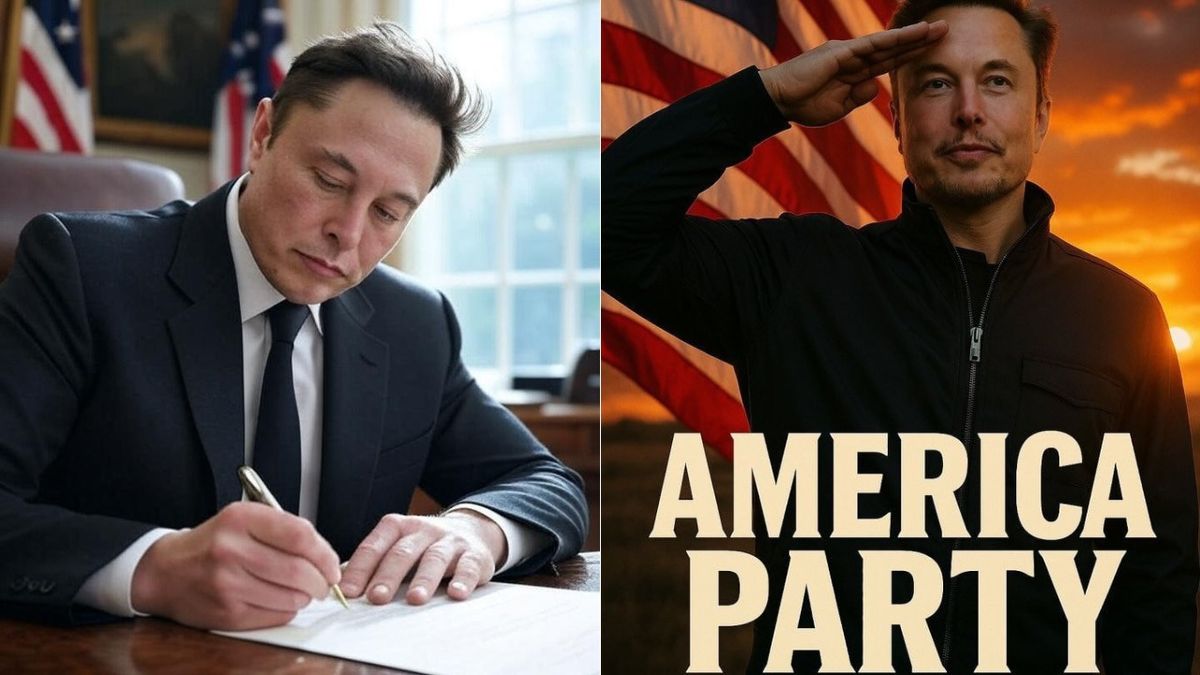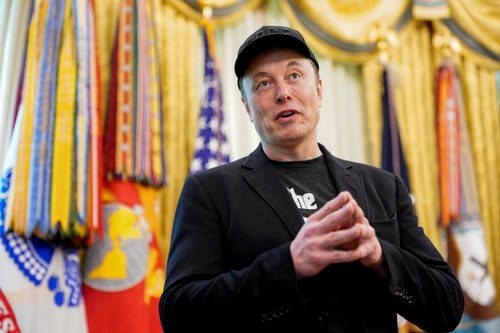At 2:00 PM +07 on July 2, 2025, Elon Musk, the world’s richest man with a $424.7 billion fortune, sparked a political uproar by announcing plans for a new U.S. political party, the “America Party,” and declaring, “We need a new leader for this country.” The statement, fueled by a public feud with President Donald Trump over the One Big Beautiful Bill Act, marks a dramatic shift for Musk, once a key Trump ally and 2024 campaign donor. This article explores the origins of Musk’s call, the proposed party’s vision, the political context, and the polarized reactions shaping this pivotal moment in American politics.
The Catalyst: A Clash with Trump
Musk’s announcement stems from a bitter rift with Trump, ignited by the One Big Beautiful Bill Act, signed into law on July 4, 2025. The $3.3 trillion legislation, extending tax cuts, eliminating taxes on tips and overtime, and boosting military and immigration funding, raised the debt ceiling by $4 trillion, per the Congressional Budget Office. Musk, who led the Department of Government Efficiency (DOGE) until May 30, 2025, cutting 280,000 federal jobs, decried the bill as a “disgusting abomination” on X, warning it would “bankrupt America.”
The feud escalated when Trump threatened to cut billions in subsidies for Tesla and SpaceX, prompting Musk’s July 1 X post: “If this insane spending bill passes, the America Party will be formed the next day. Our country needs an alternative to the Democrat-Republican uniparty.” His call for a new leader directly challenges Trump, reflecting frustration with both parties’ fiscal policies.
The America Party Vision
The proposed “America Party” aims to represent the “80% in the middle,” a concept Musk tested in a June 5 X poll where 80.4% of 5.6 million respondents supported a new party. Repurposing the name from his America PAC, which spent $250 million on Trump’s 2024 campaign, Musk envisions a platform focused on fiscal responsibility, government efficiency, and addressing AI’s economic impact. He outlined a strategy to target key House and Senate seats in 2026, aiming to create a swing bloc to influence contentious laws.

However, the U.S. two-party system poses significant barriers. State laws favor Democrats and Republicans, requiring thousands of signatures for ballot access—44,620 in Michigan, 13,979 in North Carolina. Legal challenges and donation caps under $1 million for parties limit Musk’s financial edge compared to super PACs. Experts like Thomas Gift argue that breaking the duopoly is “hard to scale,” with third parties often acting as spoilers rather than powerholders.
Political and Personal Context
Musk’s political evolution fuels his move. Once a Democratic voter, he shifted to Republicans in 2022, backing Trump in 2024 with $277 million via America PAC. His DOGE tenure aligned with Trump’s cost-cutting, but his exit and bill criticism mark a break. A Gallup poll showing 43% of Americans as independents supports Musk’s claim of a disaffected middle, though his X poll reflects his follower base, not a broad sample.
The feud coincides with Tesla’s struggles—a 19% stock drop and 45.2% European sales decline by June 2025—exacerbated by the bill’s EV subsidy cuts. Trump’s threats to review SpaceX’s $22 billion contracts add pressure, while Musk’s support for Rep. Thomas Massie, a bill opponent, signals intent to challenge GOP lawmakers in primaries.
Public and Political Reactions
Reactions on X are polarized. Supporters cheer Musk’s vision, with posts like, “Elon’s America Party could shake things up!” Critics, citing his 33% U.S. favorability in May 2025, call it a “billionaire tantrum,” with one user noting, “He’s mad about losing EV credits.” Trump dismissed the party as “ridiculous,” warning it could “sow confusion” and labeling Musk “off the rails” on Truth Social.
GOP senators like Rand Paul echo Musk’s deficit concerns, while leaders like Mike Johnson defend the bill. Democrats, per Chuck Schumer, leverage the rift to criticize tax breaks favoring the wealthy. Andrew Yang’s Forward Party has reached out, seeing synergy in centrist goals, though Musk’s focus remains unclear.
Credibility and Doubts
Skeptics question Musk’s resolve, noting his brief May 2025 reconciliation with Trump and past publicity stunts like the 2018 Teslaquila hoax. The X poll’s 80% support, while striking, isn’t representative, and no Federal Election Commission filings confirm the party’s formation. Some see it as a tactic to pressure Trump or boost Tesla stock, down 13% year-to-date. Trump’s deportation jabs, legally dubious given Musk’s citizenship, aim to rally his base.
Economic and Political Stakes
The America Party could disrupt GOP fundraising for 2026 midterms if Musk withholds support, impacting swing states. Tesla and SpaceX face risks from subsidy cuts, with analysts like Gary Black citing sales declines. A Quantus Insights poll suggests 40% of Americans might back Musk’s party, particularly tech and libertarian voters, though labor unions may resist spending cuts.
Cultural and Global Resonance
Musk’s call taps into 2025’s appetite for outsider leadership, amplified by X’s reach over traditional media. His global influence, backing far-right movements in 18 countries, suggests a broader agenda, though the party focuses on U.S. issues. Internationally, leaders like France’s Emmanuel Macron may watch, wary of similar disruptions. The feud, echoing Musk’s 2022 Twitter takeover, underscores his vision-driven approach over party loyalty.
A Defining Moment
As of July 2, 2025, Musk’s America Party and leadership call challenge Trump’s dominance, testing wealth’s political power against entrenched systems. Whether a transformative bid or a fleeting protest, it reflects disillusionment with the two-party duopoly. With legal hurdles and public skepticism, success hinges on Musk’s commitment. As Tesla and SpaceX navigate economic storms, this moment could redefine U.S. politics or reinforce its resilience, leaving a nation watching a billionaire’s bold gambit.





